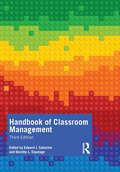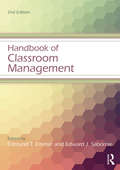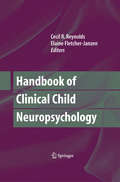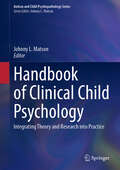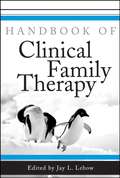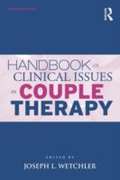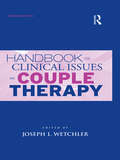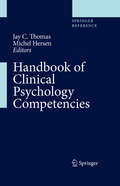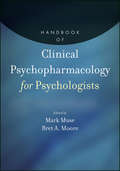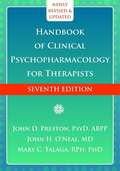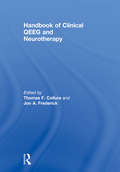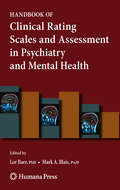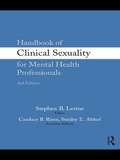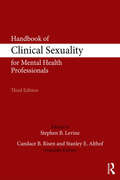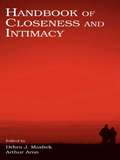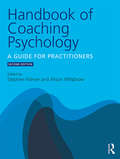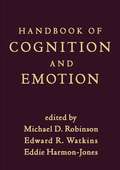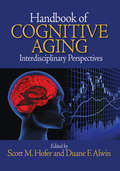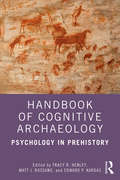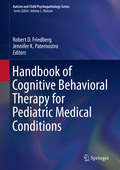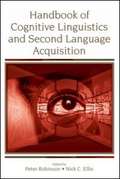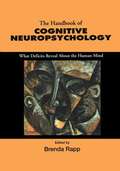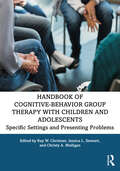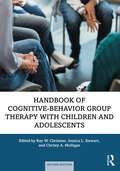- Table View
- List View
Handbook of Classroom Management
by Dorothy L. Espelage Edward J. SabornieThe Handbook of Classroom Management, Third Edition, is an authoritative treatment of the latest science and development in the study of classroom management in schools. Evidence-based classroom management practices and programs are essential to enhancing students’ academic, behavioral, social-emotional, and motivational outcomes across grade levels. This comprehensive volume collects scholarship and cutting-edge research for graduate students and faculty of psychology, teacher education, curriculum and instruction, special education, and beyond. The book has been thoroughly revised and expanded with updated coverage of foundational topics such as effective instruction, preventative strategies, positive behavior intervention and supports, family–school relationships, legal issues, and other related topics, while also giving new attention to social justice, students on the autism spectrum, and adaptations across urban, rural, and virtual contexts.
Handbook of Classroom Management: Research, Practice, And Contemporary Issues
by Edmund T. Emmer Edward J. SabornieThe field of classroom management is not a neatly organized line of inquiry, but rather consists of many disparate topics and orientations that draw from multiple disciplines. Given the complex nature of the field, this comprehensive second edition of the Handbook of Classroom Management is an invaluable resource for those interested in understanding it. This volume provides up-to-date summaries of research on the essential topics from the first edition, as well as fresh perspectives and chapters on new topics. It is the perfect tool for both graduate students and practitioners interested in a field that is fascinating but not immediately accessible without the proper guidance.
Handbook of Clinical Child Neuropsychology
by Elaine Fletcher-Janzen Cecil R. ReynoldsEvery chapter has been updated to reflect current thought and research in the field. Chapters devoted to specialized tests in neuropsychology have been updated to reflect new editions of these popular instruments. Special topic chapters have been added such as working in pediatric coma rehabilitation, using the planning, attention, sequential, simultaneous theory of neuropsychological processes, additions on ADHD, and more appear written by the leading experts and practitioners in these fields to reflect the demands of current practice in clinical child neuropsychology.
Handbook of Clinical Child Psychology: Integrating Theory and Research into Practice (Autism and Child Psychopathology Series)
by Johnny L. MatsonThis comprehensive handbook explores the many issues affecting children’s physical and mental health. Its coverage spans a broad range of topics, exploring the history and foundations of clinical child psychology as well as the discipline’s theories, research base, ethical and legal implications, and diagnostic systems, including the NIMH’s Research Domain Criteria (RDoC). The handbook examines family risk factors for children (e.g., parental stress, divorce, and depression) and provides leading-edge reviews of cognitive variables (e.g., theories of memory, executive function, theories of intelligence, theory of mind and cognitive tempo). In addition, it describes methods of assessment, including checklists, interviews, and methods of treatment (e.g., cognitive behavior therapy, mindfulness, and family therapy). Chapters focus on assessment of specific diagnostic categories, such as depression, anxiety, selective mutism, ADHD, and pediatric topics, including chronic pain, childhood cancer, childhood obesity, and toilet training. Finally, the book addresses such emerging issues as gender diversity, social justice, cyberbullying, internet gaming disorder and the impact of COVID-19.Key areas of coverage include:Foundations of clinical child psychology.Cognition and clinical child psychology.Testing, assessment, and treatment methods in child psychology.Neurodevelopmental and pediatric disorders in childhood.Assessment and treatments for challenging behaviors in children.Assessment and treatments for psychopathologies in children. The Handbook of Clinical Child Psychology is a must-have resource for researchers, professors, graduate students, clinicians, therapists, and professionals in clinical child and school psychology, child and adolescent psychiatry, social work, public health, pediatrics as well as special education, developmental psychology, nursing, and all interrelated disciplines.
Handbook of Clinical Family Therapy
by Jay L. LebowThe latest theory, research, and practice information for family therapyThe last twenty years have seen an explosion of new, innovative, and empirically supported therapeutic approaches for treating families. Mental health professionals working with families today apply a wide range of approaches to a variety of situations and clients using techniques based on their clinically and empirically proven effectiveness, their focus on specific individual and relational disorders, their applicability in various contexts, and their prominence in the field.In this accessible and comprehensive text, each chapter covers specific problems, the theoretical and practical elements of the treatment approach, recommended intervention strategies, special considerations, supporting research, and clinical examples. The contributors provide step-by-step guidelines for implementing the approaches described and discuss particular issues that arise in different couple, family, and cultural contexts.Handbook of Clinical Family Therapy covers treatment strategies for the most common problems encountered in family therapy, including:Domestic violenceAdolescent defiance, anxiety, and depressionTrauma-induced problemsStepfamily conflictsADHD disruptionSubstance abuse in adults and adolescentsCouple conflict and divorceChronic illnessA detailed reference for today's best treatment strategies, the Handbook of Clinical Family Therapy brings together the top practitioners and scholars to produce an innovative and user-friendly guide for clinicians and students alike.
Handbook of Clinical Issues in Couple Therapy
by Joseph L. WetchlerNow updated in its second edition, Handbook of Clinical Issues in Couple Therapy provides a comprehensive overview of emerging issues that impact couple therapy. Unlike other guides that concentrate more on theoretical approaches, this invaluable resource contains the latest research and perspectives that every clinician needs when dealing with the challenging issues often found in practice. Carefully referenced, it explores a range of issues that include intimate partner violence, posttraumatic stress disorder and its effect on couple relationships, divorce therapy, remarriage and cohabitation issues, cultural issues, and couple therapist training. This insightful edited volume is suitable for a wide spectrum of readers, including couple and family therapists, counselors, psychologists, social workers, pastoral counselors, educators, and graduate students.
Handbook of Clinical Issues in Couple Therapy
by Joseph L. WetchlerNow updated in its second edition, Handbook of Clinical Issues in Couple Therapy provides a comprehensive overview of emerging issues that impact couple therapy. Unlike other guides that concentrate more on theoretical approaches, this invaluable resource contains the latest research and perspectives that every clinician needs when dealing with the challenging issues often found in practice. Carefully referenced, it explores a range of issues that include intimate partner violence, posttraumatic stress disorder and its effect on couple relationships, divorce therapy, remarriage and cohabitation issues, cultural issues, and couple therapist training. This insightful edited volume is suitable for a wide spectrum of readers, including couple and family therapists, counselors, psychologists, social workers, pastoral counselors, educators, and graduate students.
Handbook of Clinical Psychology Competencies
by Michel Hersen Jay C ThomasThis three-volume handbook describes the core competency areas in providing psychological services relevant to practitioners as well as clinical researchers. It covers assessment and conceptualization of cases, the application of evidence-based methods, supervision, consultation, cross-cultural factors, and ethics.
Handbook of Clinical Psychopharmacology for Psychologists
by Bret A. Moore Mark MusePraise for Handbook of Clinical Psychopharmacology for Psychologists"Handbook of Clinical Psychopharmacology for Psychologists is a remarkably thorough introductory textbook for integrating psychotropic drug prescribing into psychological practices. It covers basic concepts in physiology, neurology, and pharmacology in easily understood language. Not only is this book a requirement for any psychologist seeking to gain prescriptive authority, but it is also helpful for any mental health clinician who collaborates with prescribers of any discipline. I recommend it highly." -Daniel Carlat, MD, Editor in Chief of The Carlat Psychiatry Report"An important resource for any psychologist who is preparing to become a prescribing psychologist or for any psychologist who wants to be informed about the practice of medical psychology." -Joseph E. Comaty, PhD, MP, coauthor of A Primer of Drug Action"Handbook of Clinical Psychopharmacology for Psychologists is an excellent treatise written by psychologists for psychologists." -From the Foreword by Patrick H. DeLeon, PhD, and Jack G. Wiggins, PhD, former presidents of the American Psychological AssociationAn essential and practical guide to integrating psychopharmacology into clinical practiceEdited by medical psychologists with contributions by notable experts in their respective specialties, Handbook of Clinical Psychopharmacology for Psychologists covers key topics including: Ethics, standards of care, laws, and regulations relevant to clinical psychopharmacology Disorders of the nervous system, with particular relevance to psychopharmacology Use of comprehensive diagnostic strategies to establish differential diagnoses among possible medical and psychological symptoms Integration of pharmacotherapy with psychotherapy This essential book also provides an introduction to the qualifying exam for psychologists seeking specialty training in psychopharmacology, the Psychopharmacology Exam for Psychologists (PEP). The PEP-like practice test is available on the companion CD-ROM.
Handbook of Clinical Psychopharmacology for Therapists 7th edition
by John D. Preston John H. O'Neal Mary C. TalagaThis seventh edition includes the latest updates on medications for mental health disorders and their side effects along with a new chapter on the effects of withdrawing from medication.
Handbook of Clinical QEEG and Neurotherapy
by Jon A. Frederick Thomas F. ColluraThis book is an essential resource describing a wide range of approaches and technologies in the areas of quantitative EEG (QEEG) and neurotherapy including neurofeedback and neuromodulation approaches. It emphasizes practical, clinically useful methods, reported by experienced clinicians who have developed and used these approaches first hand. These chapters describe how the authors approach and use their particular combinations of technology, and how clients are evaluated and treated. This resource, which is encyclopedic in scope, provides a valuable and broad, yet sufficiently detailed account, to help clinicians guide the future directions in client assessment and neurotherapeutic treatment. Each contribution includes literature citations, practical information related to clinical interventions, and clinical outcome information.
Handbook of Clinical Rating Scales and Assessment in Psychiatry and Mental Health
by Lee Baer Mark A. BlaisPsychiatric clinicians should use rating scales and questionnaires often, for they not only facilitate targeted diagnoses and treatment; they also facilitate links to empirical literature and systematize the entire process of management. Clinically oriented and highly practical, the Handbook of Clinical Rating Scales and Assessment in Psychiatry and Mental Health is an ideal tool for the busy psychiatrist, clinical psychologist, family physician, or social worker. In this ground-breaking text, leading researchers provide reviews of the most commonly used outcome and screening measures for the major psychiatric diagnoses and treatment scenarios. The full range of psychiatric disorders are covered in brief but thorough chapters, each of which provides a concise review of measurement issues related to the relevant condition, along with recommendations on which dimensions to measure - and when. The Handbook also includes ready-to-photocopy versions of the most popular, valid, and reliable scales and checklists, along with scoring keys and links to websites containing on-line versions. Moreover, the Handbook describes well known, structured, diagnostic interviews and the specialized training requirements for each. It also includes details of popular psychological tests (such as neuropsychological, personality, and projective tests), along with practical guidelines on when to request psychological testing, how to discuss the case with the assessment consultant and how to integrate information from the final testing report into treatment. Focused and immensely useful, the Handbook of Clinical Rating Scales and Assessment in Psychiatry and Mental Health is an invaluable resource for all clinicians who care for patients with psychiatric disorders.
Handbook of Clinical Sexuality for Mental Health Professionals
by Stephen Levine Candace B. Risen Stanley E. AlthofThe constantly-changing field inspired the second edition of Handbook of Clinical Sexuality for Mental Health Professionals. In a state-of-the-art guide, Dr. Levine and his associates continue to help professionals with the assessment and treatment of a large array of sexual concerns. Written in a personal, supervisory style, the book will help new therapists anticipate clinical contingencies and help experienced therapists refine their thinking and teaching. Easily accessible, the Handbook is divided into six major sections with helpful annotated references: Being a Therapist; Intimacy; Sexual Dysfunction; Sexual Identity Struggles; The Forgotten; and Additional Vital Topics. Twenty-one chapters have been thoroughly revised and updated, and five new ones have been added. These focus on gay and lesbian life, transitioning to single life, cancer survivorship, the sexual issues of the developmentally challenged, and sex among the aging.
Handbook of Clinical Sexuality for Mental Health Professionals (500 Tips Ser.)
by Candace B. Risen Stanley E. Althof Stephen B. LevineThe Handbook of Clinical Sexuality for Mental Health Professionals, 3rd Edition, builds on the authors’ authoritative first person voice on sexual matters of the previous editions. The work reflects the field's growing sophistication about sexual disorders and their therapies. The scope has been expanded to keep pace with new literature and research in the field, and eight additional chapters have been added. New topics include the politics of diagnosis, persistent genital arousal, asexuality, post orgasm illness, scientific findings concerning origin of orientation, and partnering with the pharmaceutical industry. Easily accessible, the Handbook is divided into sections that touch on fundamental knowledge and skills; treatment; men’s major sexual concerns; women’s major sexual concerns; problems common to both genders; the diversity of sexual lives; and future and trending topics. Written in a personal, supervisory style, the book will help new therapists anticipate clinical contingencies and help experienced therapists refine their thinking and teaching.
Handbook of Closeness and Intimacy
by Arthur Aron Debra J. MashekThis handbook brings together the latest thinking on the scientific study of closeness and intimacy from some of the most active and widely recognized relationship scholars in social and clinical psychology, communication studies, and related disciplines. Each contributing author defines their understanding of the meaning of closeness and intimacy; summarizes existing research and provides an overview of a theoretical framework; presents new ideas, applications, and previously unstated theoretical connections; and provides cross-references to other chapters to further integrate the material. The Handbook of Closeness and Intimacy will be of interest to researchers, practitioners, and students from social, clinical, and developmental psychology; family studies; counseling; and communication.
Handbook of Coaching Psychology: A Guide for Practitioners
by Stephen Palmer Alison WhybrowThe Handbook of Coaching Psychology: A Guide for Practitioners provides a clear and extensive guide to the theory, research and practice of coaching psychology. In this new and expanded edition, an international selection of leading coaching psychologists and coaches outlines recent developments from a broad spectrum of areas. Part One examines perspectives and research in coaching psychology, looking at both the past and the present as well as assessing future directions. Part Two presents a range of approaches to coaching psychology, including behavioural and cognitive behavioural, humanistic, existential, being-focused, constructive and systemic approaches. Part Three covers application, context and sustainability, focusing on themes including individual transitions in life and work, and complexity and system-level interventions. Finally, Part Four explores a range of topics within the professional and ethical practice of coaching psychology. The book also includes several appendices outlining the key professional bodies, publications, research centres and societies in coaching psychology, making this an indispensable resource. Unique in its scope, this key text will be essential reading for coaching psychologists and coaches, academics and students of coaching psychology, coaching and mentoring and business psychology. It will be an important text for anyone seeking to understand the psychology underpinning their coaching practice, including human resource, learning and development and management professionals, and executives in a coaching role.
Handbook of Cognition and Emotion
by Eddie Harmon-Jones Edward R. Watkins Michael D. RobinsonComprehensively examining the relationship between cognition and emotion, this authoritative handbook brings together leading investigators from multiple psychological subdisciplines. Biological underpinnings of the cognition-emotion interface are reviewed, including the role of neurotransmitters and hormones. Contributors explore how key cognitive processes--such as attention, learning, and memory--shape emotional phenomena, and vice versa. Individual differences in areas where cognition and emotion interact--such as agreeableness and emotional intelligence--are addressed. The volume also analyzes the roles of cognition and emotion in anxiety, depression, borderline personality disorder, and other psychological disorders.
Handbook of Cognitive Aging: Interdisciplinary Perspectives
by Scott M. Hofer Duane Francis Alwin"Provides a unique perspective. I am particularly impressed with the sections on innovative design and methods to investigate cognitive aging and the integrative perspectives. None of the existing texts covers this material to the same level." —Donna J. La Voie, Saint Louis University "The emphasis on integrating the literature with theoretical and methodological innovations could have a far-reaching impact on the field." —Deb McGinnis, Oakland University The Handbook of Cognitive Aging: Interdisciplinary Perspectives clarifies the differences in patterns and processes of cognitive aging. Along with a comprehensive review of current research, editors Scott M. Hofer and Duane F. Alwin provide a solid foundation for building a multidisciplinary agenda that will stimulate further rigorous research into these complex factors. Key Features Gathers the widest possible range of perspectives by including cognitive aging experts in various disciplines while maintaining a degree of unity across chapters Examines the limitations of the extant literature, particularly in research design and measurement, and offers new suggestions to guide future research Highlights the broad scope of the field with topics ranging from demography to development to neuroscience, offering the most complete coverage available on cognitive aging
Handbook of Cognitive Archaeology: Psychology in Prehistory
by Matt J. Rossano Tracy B. Henley Edward P. KardasThe remains that archaeologists uncover reveal ancient minds at work as much as ancient hands, and for decades many have sought a better way of understanding those minds. This understanding is at the forefront of cognitive archaeology, a discipline that believes that a greater application of psychological theory to archaeology will further our understanding of the evolution of the human mind. Bringing together a diverse range of experts including archaeologists, psychologists, anthropologists, biologists, psychiatrists, neuroscientists, historians, and philosophers, in one comprehensive volume, this accessible and illuminating book is an important resource for students and researchers exploring how the application of cognitive archaeology can significantly and meaningfully deepen their knowledge of early and ancient humans. This seminal volume opens the field of cognitive archaeology to scholars across the behavioral sciences.
Handbook of Cognitive Behavioral Therapy for Pediatric Medical Conditions (Autism and Child Psychopathology Series)
by Robert D. Friedberg Jennifer K. PaternostroThis handbook offers a comprehensive review of cognitive behavioral therapy (CBT) for working in integrated pediatric behavioral health care settings. It provides research findings, explanations of theoretical concepts and principles, and descriptions of therapeutic procedures as well as case studies from across broad conceptual areas. Chapters discuss the value of integrated care, diversity issues, ethical considerations, and the necessary adaptations. In addition, chapters address specific types of pediatric conditions and patients, such as the implementation of CBT with patients with gastrointestinal complaints, enuresis, encopresis, cancer, headaches, epilepsy, sleep problems, diabetes, and asthma. The handbook concludes with important directions in research and practice, including training and financial considerations.Topics featured in this handbook include: Emotional regulation and pediatric behavioral health problems. Dialectical Behavior Therapy (DBT) for pediatric medical conditions. Pharmacological interventions and the combined use of CBT and medication. CBT in pediatric patients with chronic pain. CBT for pediatric obesity. CBT-informed treatments and approaches for transgender and gender expansive youth.Medical non-compliance and non-adherence associated with CBT.Training issues in pediatric psychology. The Handbook of Cognitive Behavioral Therapy for Pediatric Medical Conditions is an essential resource for researchers and graduate students as well as clinicians, related therapists, and professionals in clinical child and school psychology, pediatrics, social work, developmental psychology, behavioral therapy/rehabilitation, child and adolescent psychiatry, nursing, and special education.
Handbook of Cognitive Linguistics and Second Language Acquisition
by Peter Robinson Nick EllisThis cutting-edge volume describes the implications of Cognitive Linguistics for the study of second language acquisition (SLA). The first two sections identify theoretical and empirical strands of Cognitive Linguistics, presenting them as a coherent whole. The third section discusses the relevance of Cognitive Linguistics to SLA and defines a research agenda linking these fields with implications for language instruction. Its comprehensive range and tutorial-style chapters make this handbook a valuable resource for students and researchers alike.
Handbook of Cognitive Neuropsychology: What Deficits Reveal About the Human Mind
by Brenda RappThis volume reviews the full range of cognitive domains that have benefited from the study of deficits. Chapters covered include language, memory, object recognition, action, attention, consciousness and temporal cognition.
Handbook of Cognitive-Behavior Group Therapy with Children and Adolescents: Specific Settings and Presenting Problems
by Arthur Freeman Ray W. Christner Jessica L. StewartThis Handbook offers a much-needed resource of theoretical knowledge, evidence-based interventions, and practical guidelines for professionals providing group psychotherapy to youth clients. Written by leading professionals in the field of child and adolescent cognitive-behavioral therapy, this comprehensive volume offers readers a collection of innovative and well established approaches for group interventions with youth in a variety of treatment settings. It addresses a wide range of issues, not limited to assessment, group member selection, and specific protocols and strategies that readers can implement in their own practice. Integrating theoretical and practical aspects, leading experts offer their experience through case examples and vignettes, suggesting guidelines for overcoming inherent treatment obstacles. This Handbook provides not only a framework for delivering effective group therapy, but also highlights specific problem areas, and it is an invaluable reference for professionals providing therapeutic intervention to children and adolescents.
Handbook of Cognitive-Behavior Group Therapy with Children and Adolescents: Specific Settings and Presenting Problems
by Arthur Freeman Ray W. Christner Jessica L. StewartThis Handbook offers a much-needed resource of theoretical knowledge, evidence-based interventions, and practical guidelines for professionals providing group psychotherapy to youth clients.Written by leading professionals in the field of child and adolescent cognitive-behavioral therapy, this comprehensive volume offers readers a collection of innovative and well established approaches for group interventions with youth in a variety of treatment settings.It addresses a wide range of issues, not limited to assessment, group member selection, and specific protocols and strategies that readers can implement in their own practice. Integrating theoretical and practical aspects, leading experts offer their experience through case examples and vignettes, suggesting guidelines for overcoming inherent treatment obstacles.This Handbook provides not only a framework for delivering effective group therapy, but also highlights specific problem areas, and it is an invaluable reference for professionals providing therapeutic intervention to children and adolescents.
Handbook of Cognitive-Behavior Group Therapy with Children and Adolescents: Specific Settings and Presenting Problems
by Christy A. Mulligan Jessica L. Stewart Ray W ChristnerNow in its second edition, the Handbook of Cognitive-Behavior Group Therapy with Children and Adolescents offers a review of cognitive-behavior therapy fundamentals, evidence-based group interventions, and practical guidelines for group psychotherapy.This extensive guide presents innovative and evidence-based treatments for the challenges faced by today's youth. Each chapter covers areas such as assessment, case conceptualization, group selection, cultural considerations, protective factors, and detailed strategies and treatment protocols for use in clinical practice. This handbook combines theoretical foundations with practical application, highlighting the authors' personal experiences through case studies and therapeutic vignettes.This book is an invaluable reference for professionals providing therapeutic intervention to children and adolescents.
